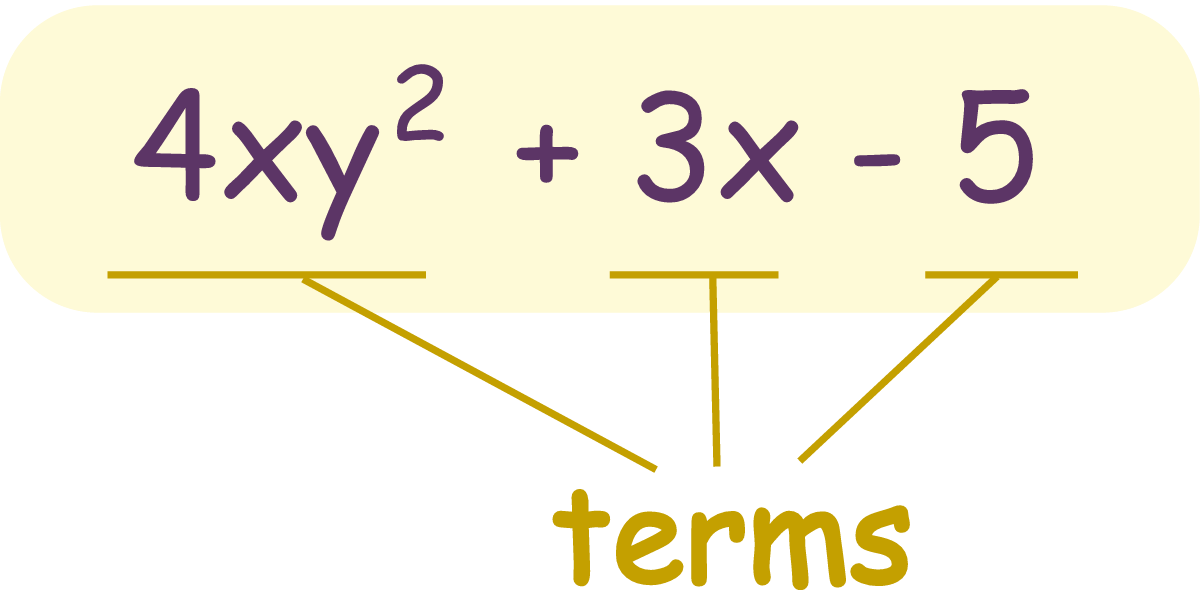Otis
Elite Member
- Joined
- Apr 22, 2015
- Messages
- 4,589
I would've reworded that part, but I know what you mean.The lhs ... can be thought of as a polynomial with the correct u-substitution
I would've reworded that part, but I know what you mean.The lhs ... can be thought of as a polynomial with the correct u-substitution
Is that your book's definition, or did you just copy that from some random web page (as is your habit)?Algebraic expression that constitutes the ordered sum or subtraction of a finite number of terms or monomials. They can have more than one variable
Algebra1 course 2 is the book I have. It has a definition for a polynomial function. Not for a polynomial.Is that your book's definition, or did you just copy that from some random web page (as is your habit)?

Well Khan is wrong! --if in fact he said that.But this definition is not fromcany website. It is from a rather reputable one.
Polynomials are sums of terms of the form k⋅xⁿ, where k is any number and n is a positive integer. For example, 3x+2x-5 is a polynomial.
From Khan Academy .
Can you supply the direct link to what you quoted? I doubt that Sal actually said that.But this definition is not fromcany website. It is from a rather reputable one.
Polynomials are sums of terms of the form k⋅xⁿ, where k is any number and n is a positive integer. For example, 3x+2x-5 is a polynomial.
From Khan Academy .
Can you supply the direct link to what you quoted? I doubt that Sal actually said that.

Well, that's kind of silly. Perhaps, they've embedded the polynomial definition within the function definition.Algebra1 course 2 is the book I have. It has a definition for a polynomial function. Not for a polynomial.
Hard to say, Jomo. If he did, then I'm sure he didn't realize it. In videos, Sal regularly misstates bits of what he's written or he messes up writing bits of what he's said. After a number of years, he and his employees had begun adding corrections to many videos, but a lot of mistakes still remain. Sometimes, the site posts video corrections in writing, so one has to examine the entire web page.I doubt that Sal actually said that.
Maybe you ought to weep a little, Eddy. Either you can't locate its quadratic definition or the book is deficient.Read it and weep! Lol
I'm glad you're joking because you've already answered that question for us many times over!If these books have these mistakes, can little old dum Eddy make one? Lollll.
Yes, I was joking of course. What is the definition of a polynomial then?.I'm glad you're joking because you've already answered that question for us many times over!
PS: I'm joking, too, lol.
[imath]\;[/imath]

no, that is the definiton in the book. you asked me to take a pic and send it. I did. Now what?. are these writers wrong too?.Hard to say, Jomo. If he did, then I'm sure he didn't realize it. In videos, Sal regularly misstates bits of what he's written or he messes up writing bits of what he's said. After a number of years, he and his employees had begun adding corrections to many videos, but a lot of mistakes still remain. Sometimes, the site posts video corrections in writing, so one has to examine the entire web page.
Sal has so many employees now that it could be he hasn't even seen most printed information currently on his site. (They don't really moderate student claims in those 'conversation' sections, either, so they are also rife with misinformation.)
Maybe you ought to weep a little, Eddy. Either you can't locate its quadratic definition or the book is deficient.
?
The book is deficient, lol. And I don't boubt that for a second, believe. me!. I'll follow the definition from my tutors here. C'mon, what is that definition?. No one I have given seems to fit the bill.Hard to say, Jomo. If he did, then I'm sure he didn't realize it. In videos, Sal regularly misstates bits of what he's written or he messes up writing bits of what he's said. After a number of years, he and his employees had begun adding corrections to many videos, but a lot of mistakes still remain. Sometimes, the site posts video corrections in writing, so one has to examine the entire web page.
Sal has so many employees now that it could be he hasn't even seen most printed information currently on his site. (They don't really moderate student claims in those 'conversation' sections, either, so those sections are also rife with misinformation.)
Maybe you ought to weep a little, Eddy. Either you can't locate its quadratic definition or the book is deficient.
?
Zero is a Whole number, and that's an issue with the definition above because x^0 is not defined when x itself is zero.any variables in [a polynomial] must have whole-number powers
The definition is mostly good, for a polynomial. However, they need to include a statement about the exponents.that is the definiton (sic) in the book ... are these writers wrong too?
Try the link below. I haven't thoroughly reviewed that page, but I see they make the same claim as purplemath. They say that x^0 is okay. I don't like that because it precludes x from taking on the value zero.What is a polynomial?

